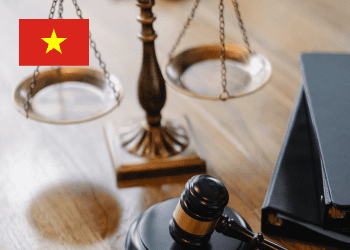Invalidating a bad-faith trademark registration in Vietnam

Bad-faith trademark registration is largely seen in Vietnam nowadays, especially since foreign investors are shifting production from China to Vietnam following the recent US-China trade war. Trademarks in Vietnam are generally awarded on a “first-to-file” basis, as opposed to a "first-to-use" system, resulting in floods of trademark applications, many of which imitate or mimic foreign reputable brands that have yet to expand into the Vietnamese market. Invalidating a trademark registered in bad faith in Vietnam is not always easy, as the country's IP Law does not define or contain specific provisions on bad faith. However, Snap Inc., a US-based company, has won a significant victory in an unwanted battle with a local individual who took advantage of “first-to-file” principles to register the mark “Snapshot” in his name.
Snap Inc., initially established on September 16, 2011, operates as a US-based camera and social media company. Since its foundation, it has developed the likes of its flagship product Snapchat, as well as other tech products and services such as Bitmoji and Spectacles. It came to Snap Inc.’s attention that their mark “SNAPCHAT” was registered in Vietnam by an individual applicant, and a subsequent request for invalidation against this mark was filed with the Vietnamese IPO.
The invalidation was predicated mainly on wide use and renown of the mark “SNAPCHAT” in the name of Snap Inc. Evidence and arguments submitted included the goods and services covered by the original SNAPCHAT mark, the global reputation of the brand, and the existence of the mobile app, and as such, the filing of an identical trademark for the same services was in bad faith, as it aimed to take advantage of Snap Inc.'s trademark's prestige and goodwill, potentially causing adverse effects to Snap Inc. and confusion to consumers between the two parties’ trademarks. Upon reviewing the invalidation action alongside the supporting evidence, the IPO of Vietnam agreed with Snap Inc.’s request for invalidation.
Bad-faith filings can be difficult to mitigate in the jurisdiction owing to Vietnam's use of the “first-to-file” system, allowing those who have no intent to use the applied-for mark in legitimate business to use the trademark as potential leverage through so-called "trademark squatting". Various foreign well-known trademarks are freely registered and used in Vietnam by bad-faith registrants before the foreign brand expands into Vietnam, forcing the true trademark owner to buy back or obtain a license to use the mark. Furthermore, marks registered in bad faith that do make use of the mark by copying or mimicking a well-known one are plainly trying to trade on the goodwill associated with the foreign trademarked products, and confuse the buying public as to their origin. It is therefore recommended that companies anticipating business expansion into Vietnam should prioritize applying to register their trademarks in Vietnam at the earliest opportunity.
Under the Law on Intellectual Property of Vietnam, there is no definition of what may be considered "bad-faith" or "dishonesty" by the applicant. However, it does provide for a statute of limitation for invalidation of IP titles on "bad-faith filing", stating that the statute for limitations for invalidation actions shall be 5 years from the date of granting, unless the protection title was granted as a result of the applicant's dishonesty. The provision can therefore be interpreted to mean that if an invalidation action is taken on a bad-faith filing or dishonesty of the applicant, the 5-year statute of limitation is not applicable, and such invalidation action can be taken at any time during the validity of the trademarks. However, due to the lack of specific provisions on what acts are to be deemed as "bad faith", invalidation proceedings before the Vietnam IPO are normally time-consuming and the outcome is uncertain. It is therefore crucial to provide evidence that "the registrant is aware of the genuine holder’s trademark" as well as the "relationship" between the registrant and righteous trademark holder manifested by investment, license or contract relations, to heighten chances of success in invalidating a bad-faith mark.
Aside from direct evidence of bad faith, it is critical that the true trademark owner provides evidence to prove their used-based rights of their unregistered mark under either and/or both the ground of a mark being well-known, and the ground of a mark being in wide use. Further, a claim on copyright (where applicable) may serve as a ground to initiate an invalidation action if the mark includes names or figures of characters of publicly known works under copyright protection owned by the righteous trademark holders.